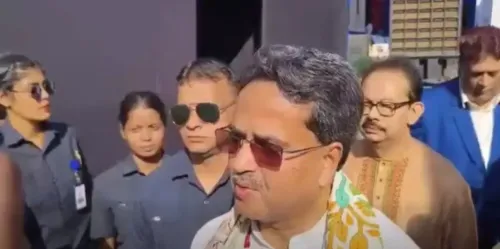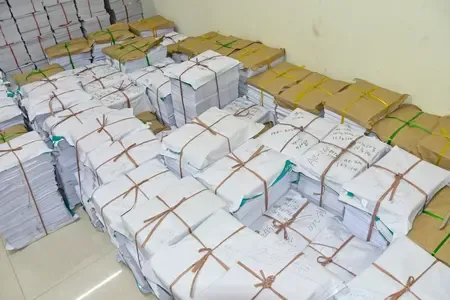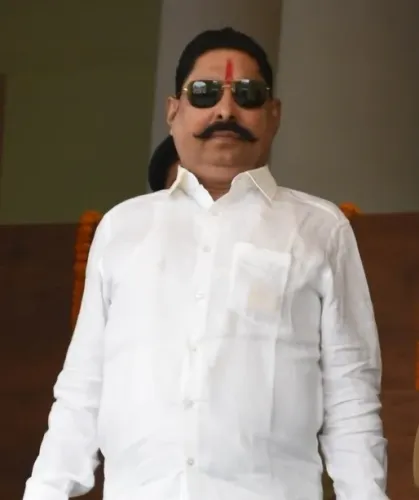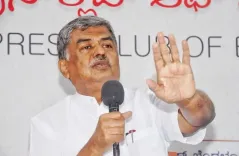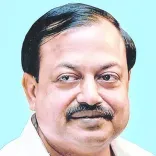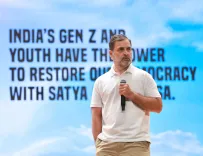How has Gujarat disbursed over Rs 1,432 crore to women self-help groups?
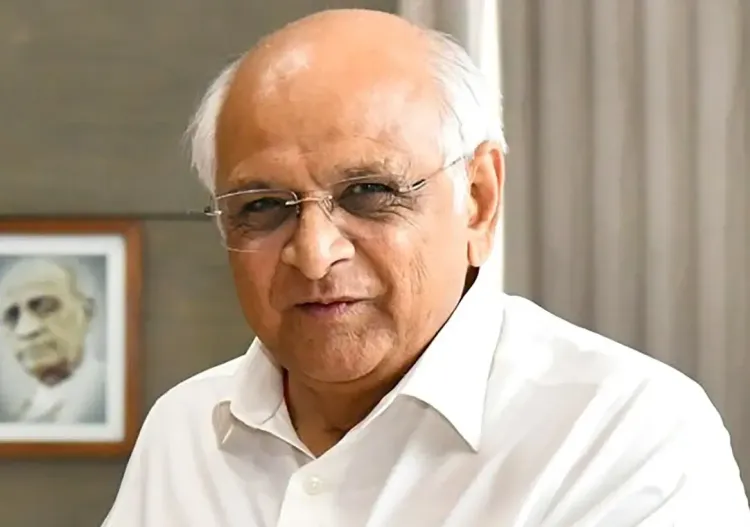
Synopsis
Key Takeaways
- Gujarat government disbursed Rs 1,432 crore in funds to SHGs.
- 2.86 lakh SHGs formed covering 28.69 lakh rural households.
- 5.96 lakh women crossed the income threshold of Rs 1 lakh.
- New schemes aim to empower 10 lakh rural women.
- Collaboration with CSR organizations strengthens local enterprises.
Gandhinagar, Nov 14 (NationPress) The Gujarat government has allocated over Rs 1,432 crore in financial support and more than Rs 3,652 crore in cash-credit loans to self-help groups (SHGs) as part of the Deendayal Antyodaya Yojana–National Rural Livelihoods Mission (DAY-NRLM).
Executed through the state-operated Gujarat Livelihood Promotion Company Limited (GLPC), this initiative is designed to enhance income opportunities, foster local entrepreneurship, and increase financial inclusion for women in rural areas.
Since its inception, GLPC has facilitated the formation of 2.86 lakh SHGs, benefiting 28.69 lakh rural households.
The organization has disbursed Rs 257.90 crore as revolving funds and Rs 1,174.63 crore as community investment funds, establishing a financial foundation that empowers women to manage small businesses, access markets, and uplift household incomes.
The state’s flagship 'Lakhpati Didi' program has helped 5.96 lakh women surpass the annual income threshold of Rs 1 lakh.
To advocate for natural farming, over 12,000 Krishi Sakhis have been educated, and 125 bio-input resource centers have been established with assistance from the Agriculture Department.
GLPC's livelihood initiatives span various sectors including agriculture, animal husbandry, forest products, natural farming, fisheries, and dairy.
Approximately 2.77 lakh women are involved in crop production, 6.11 lakh in livestock management, about 10,000 in forest products, and over 16,000 in fisheries.
In addition to agriculture, non-farm livelihoods have seen significant growth. SHGs are now operating food processing units, handloom and handicraft businesses, pottery shops, textile operations, canteens, catering services, and hygiene product production.
With 50 new canteens launched this year, the total number of Mangalam Canteens has reached 200, offering sustainable livelihoods to women statewide.
Market accessibility has been a significant focus. Over the last five years, the state has hosted more than 200 Saras fairs, regional fairs, Rakhi melas, and Navratri exhibitions, allowing 5,950 SHGs to display their products and collectively achieve Rs 48 crore in sales.
Direct sales connections through railway station retail outlets, e-commerce platforms, digital catalogs, and social media have further expanded outreach.
GLPC has collaborated with multiple CSR organizations such as Reliance Foundation, Pidilite Industries, BAIF, CSR Box, and Supath Foundation to strengthen enterprises like cattle-feed units, micro-businesses, canteens, and custom hiring centers.
Looking forward, the government has introduced two new schemes: the G-Safal Yojana, which will allocate Rs 500 crore over five years to assist 50,000 Antyodaya families, and the G-Maitri Yojana, featuring a Rs 50-crore startup fund aimed at empowering 10 lakh rural women with new livelihood opportunities.
Initially launched in 2011 by the Centre, DAY-NRLM now encompasses 745 districts across 28 states and six Union Territories (excluding Delhi and Chandigarh), connecting 10.05 crore rural women through over 90.90 lakh SHGs.


